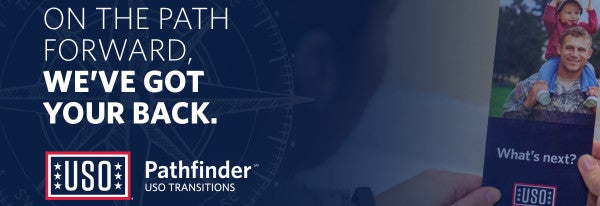From Soldier To Citizen: A ‘Pathway’ To Financial Wellness For Veterans
Editor’s Note: The article was written by Chuck Sevola, Army veteran and Vice President, Veterans Initiatives at Prudential Financial, Inc....

Editor’s Note: The article was written by Chuck Sevola, Army veteran and Vice President, Veterans Initiatives at Prudential Financial, Inc.
Over the last few decades, while the rigors and requirements of military life have changed, the government has continued to provide a fairly encompassing set of benefits such as health insurance, housing, and other allowances to service members and their families. Unfortunately, today’s veterans find that few civilian employers will take care of them in the same paternal fashion as Uncle Sam.
In the 1970s and 1980s, most companies provided health insurance to workers and their families, as well as retiree health insurance and workplace retirement plans that paid a lifetime pension – all at no cost to the employee. Today’s employer benefits are far less generous, forcing employees to shoulder more of the costs, financial risk, and decision-making responsibilities.
In many instances, employees also have to cover a greater percentage of their healthcare costs via higher premiums, larger deductibles, and higher co-payments. Traditional defined benefit pension plans have largely been replaced by defined contribution plans, which require employees to contribute a meaningful amount of their paycheck towards their future retirement. Instead of employer-provided retiree health insurance, most workers now have to save money on their own to cover healthcare expenses that won’t be covered by Medicare.
Upon employment, transitioning members of the military are immediately faced with critical decisions that will likely impact their family’s financial security. New employees must typically choose which type of health insurance to sign up for, how much life and disability insurance to acquire, and how much to save from each paycheck in a 401(k) plan.

Chuck Sevola accepting his promotion to captain while on active duty.Courtesy photo
Adding to the complexity, military families already face different financial challenges than the public at large. A 2017 study by the FINRA Investor Education Foundation found that while veterans tend to have better savings habits than non-veterans, they have more difficulty managing spending and credit, possibly due to the upheaval of frequent redeployments.
It’s no wonder many veterans and their families are feeling stressed — but there is good news.
The USO’s PathfinderSM program is an excellent answer to this problem. It provides help for transitioning service members and their families to address not only issues of financial security, but also a myriad of challenges that a military family will face, including finding a job, getting legal support or other types of assistance necessary during this critical life transition.
A service member can visit a PathfinderSM site in USO centers at 13 major cities across the country to meet with a concierge transition counselor, or Scout. Scouts work with the service member to understand the details of their transition, the issues that they may face and the types of help that would make their specific transition much less stressful. The USO, through its extensive network of networks, built a portfolio of trusted service providers that bring expertise and tools to service members to help close the gaps identified by the Scout.
In partnership with the USO, Prudential has launched Prudential Pathways, a program of free, engaging workshops tailored to the financial needs and challenges that transitioning military families face. This comprehensive program provides vital information that service members and military spouses can use to ensure their financial wellness as they transition from military service to thriving veterans status.

Chuck SevolaCourtesy photo
The workshops are designed to build confidence in pursuing financial goals. Each workshop consists of a presentation from a financial professional on foundational aspects of financial planning literacy including budgeting, saving, college funding, and tax concepts or considerations. The workshops address issues unique to transitioning members including military pensions, options for healthcare (e.g., Tricare), retirement savings (e.g., Thrift Savings Plan), and life insurance specifically available to veterans (e.g., Veterans Group Life Insurance).
Prudential Pathways workshops are hosted in the local community near a USO site. In addition to face-to-face workshops, the USO is partnering with Prudential to make supplementary financial wellness education available through a digital platform.
With its long history of helping customers find financial peace of mind, Prudential is a strong proponent of the U.S. Armed Forces and our veterans. Likewise, the USO is renowned for its rich history of supporting service members and their families. The collaboration between these two organizations to address the challenges facing service members transitioning to civilian life, and helping them achieve financial wellness can serve as a model for public-private partnerships.
Prudential stands ready to continue its commitment and partnership with the USO to pool expertise and resources to ensure that those who have sacrificed so much to keep our country safe can enjoy long-term financial security.